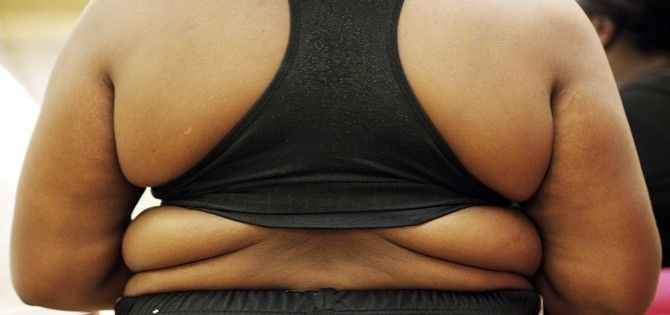Obese Kids Believe They're A Healthy Weight

Almost one-third of American children and teenagers are either obese or overweight, but a new study carried out by the U.S. Centers for Disease Control and Prevention, or CDC, found 30 percent of them -- about 9.1 million -- believe they are at the correct weight.
The National Health and Nutrition Examination Survey data were collected between 2005 and 2012 from about 6,000 children and adolescents in the U.S. CDC found 30.2 percent of young people ages 8-15 years misperceived their weight status (33.1 percent among those 8-11 and 27.4 percent among those 12-15).
This misperception was more common among heavier kids. CDC reported 41.9 percent of those obese believed they were of normal weight and a staggering 76.0 percent of those overweight considered themselves to be of normal weight.
A large number of those with misperceptions were from families with lower incomes.
Unfortunately, “parents are often unaware of the problem,” Timothy D. Nelson, an assistant professor of psychology at the University of Nebraska-Lincoln who was not involved in the CDC study, told USA Today.
A nutritional epidemiologist at the National Center for Health Statistics and the lead author of the report, Neda Sarafrazia, told the newspaper, “When overweight kids underestimate their weight, they are less likely to take steps to reduce their weight or do additional things to control their weight, like adopt healthier eating habits or exercise regularly.”
If children understand their weight status, Sarafrazia said, then it can encourage them to take action and prevent health problems in the future.
Children are not the only ones afflicted by misperception of their weight: CDC found in a study of adults that almost 40 percent of those overweight and 8 percent of those obese believed they were “about the right weight.”
It appears diet is among the main culprits, with Psychology Today reporting 52 percent of Americans admit they think it’s easier to do their taxes than to figure out how to eat healthily.
Kendrin Sonneville, a Harvard School of Public Health researcher who was not involved in the CDC study, told the Associated Press the new survey is “a true snapshot of what the U.S. population thinks their weight status is.”
© Copyright IBTimes 2025. All rights reserved.





















